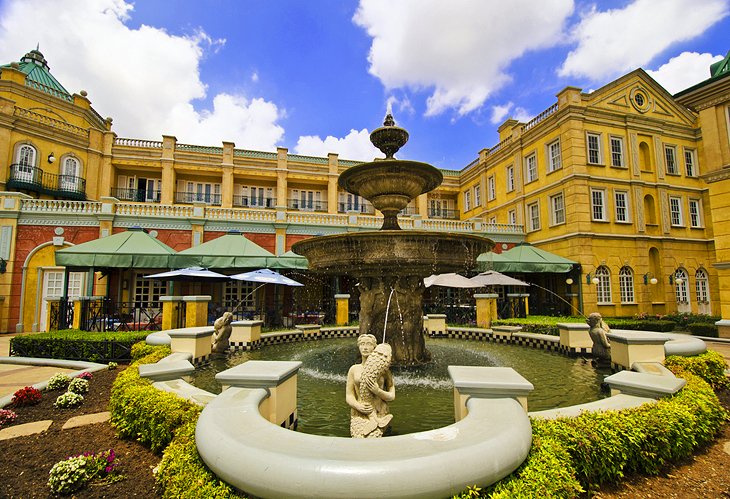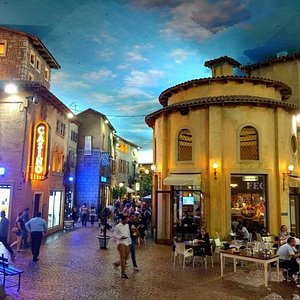The Of Johannesburg North Attractions
The Of Johannesburg North Attractions
Blog Article
Johannesburg North Attractions Fundamentals Explained
Table of ContentsGetting The Johannesburg North Attractions To WorkJohannesburg North Attractions Fundamentals ExplainedLittle Known Questions About Johannesburg North Attractions.An Unbiased View of Johannesburg North AttractionsMore About Johannesburg North AttractionsNot known Factual Statements About Johannesburg North Attractions 3 Easy Facts About Johannesburg North Attractions Described
You should keep protection in mind and tourists have to stay sharp at all times when in unfamiliar surroundings. Talk with the locals when you are in community to find out regarding the location you are remaining in. Johannesburg North attractions. When on the street (this doesn't use to shopping malls and other safe and secure environments) finest general recommendations is to attempt your finest to resemble a local and to prevent presenting any type of riches
Unknown Facts About Johannesburg North Attractions
Professor Revil Mason O. J. (Thomson, 1946) checked out the Witwatersrand's pre-colonial background. His historical job exploded the 'em pty land' myth, according to which the region was lacking human habitation before the arrival of European inhabitants. In his magazines Prehistory of the Transvaal: A Document of Human Activity (1962) and Origins of Black People of Johannesburg and the Southern Western Central Transvaal AD 3501880 (1986 ), Teacher Mason showed the level of social and financial development in the area prior to Europeans established foot below.

Johannesburg North Attractions - Questions
In 1878, David Wardrop found gold in quartz capillaries at Zwartkop, north of Krugersdorp. In 1881, Stephanus Minnaar came throughout gold on the ranch Kromdraai, near the Cradle of Mankind.
In March 1886, an outcropping (soon to be called the Main Coral reef) was located, quite fortuitously, on Gerhardus Oosthuizen's farm Langlaagte. Some state that the Lancastrian coal miner George Pedestrian uncovered this coral reef. Another itinerant English prospector, George Harrison (who had previously worked in Australian mines) obtained a prospecting licence in respect of Langlaagte in May 1886.
He chose to relocate on in a pursuit for greener fields, and disposed of his Langlaagte case for the baronial amount of 10. Alas: under lay the wealthiest goldfield ever discovered. The discovery of this rich auriferous coral reef provoked a gold rush that signalled the end of bucolic tranquillity in the southern Transvaal.
It would, within six years, become the largest article source community in southerly Africa. Within a years, it would certainly make the Z. A. R. up until then an anarchical and bankrupt little state the wealthiest country in Africa. By the millenium, the Z. A. R. was to exceed Russia, Australia and the United States of America to end up being the world's leading gold producer, generating even more than a quarter of the globe's gold.
The 6-Second Trick For Johannesburg North Attractions
It was called Ferreira's Camp, named after Colonel Ignatius Ferreira. He was a Boer traveler upon whom the British authorities had presented the condition of Companion of the Many Distinguished Order of St Michael and St George (qualifying him to the post-nominal letters C. M. G.) in gratitude for his role in the war that had deposed the Pedi king Sekhukhune in 1879.
Soon the camp was including camping tents and wagons as beginners got here daily from far and wide. By September 1886, some 400 individuals resided in Ferreira's Camp, which additional hints quickly boasted prefabricated navigate to this site iron and lumber buildings. 2 various other camps were established: Meyer's Camp on the ranch Doornfontein, and Paarl Camp. The latter was nicknamed Afrikander Camp; many individuals from the Cape Colony cleared up there.

The Johannesburg North Attractions Statements
This name gained money by word of mouth, such that the State Secretary attested the name to the Mining Commissioner on 9 October 1886. Stands in the village were auctioned on 8 December 1886. While some stands were marketed for 10, others were knocked down for just sixpence.
Two years later on, these erven were to alter hands for as high as 750 each. The tented camps diminished as a dorp of corrugated iron structures created and broadened north of the mines situated along the Main Coral Reef Roadway. Locations such as Jeppe's Community (where working-class immigrants erected their houses) and Doornfontein (where the affluent brand-new 'Randlords' started to build their luxurious residences) were quickly contributed to the ever-expanding map of the community.
The 2-Minute Rule for Johannesburg North Attractions
Apart from the road names, there were no indicators of Johannesburg being positioned in a Dutch-speaking nation., virtually every person talked English and also the Federal government slaves resolved one in English, unless they were very first attended to in the Taal (or Reduced Dutch)'.
Thus, Britain had a passion in making certain optimum problems for gold manufacturing on the Witwatersrand, which the gold was exported to London rather than Berlin a vital made even more clamant by the Z. A. R - Johannesburg North attractions.'s boosting toenadering with Germany. Mine proprietors got on an accident course with Head of state Kruger, whose plan of monopolistic concessions (commonly approved to his cronies) avoided mining companies from acquiring materials of materials (especially dynamite) and work on their own, less expensive terms
All about Johannesburg North Attractions
In 1890, the Volksraad had limited the franchise to white guys that had stayed in the Z. A. R. for fourteen years or longer, hence invalidating a lot of the immigrants (that happened to be the significant contributors to the fiscus). Frustration for the ballot was a mere pretext for advertising a different agenda; a lot of uitlanders concerned themselves as temporary visitors and had no objective of continuing to be in the Z.
Report this page